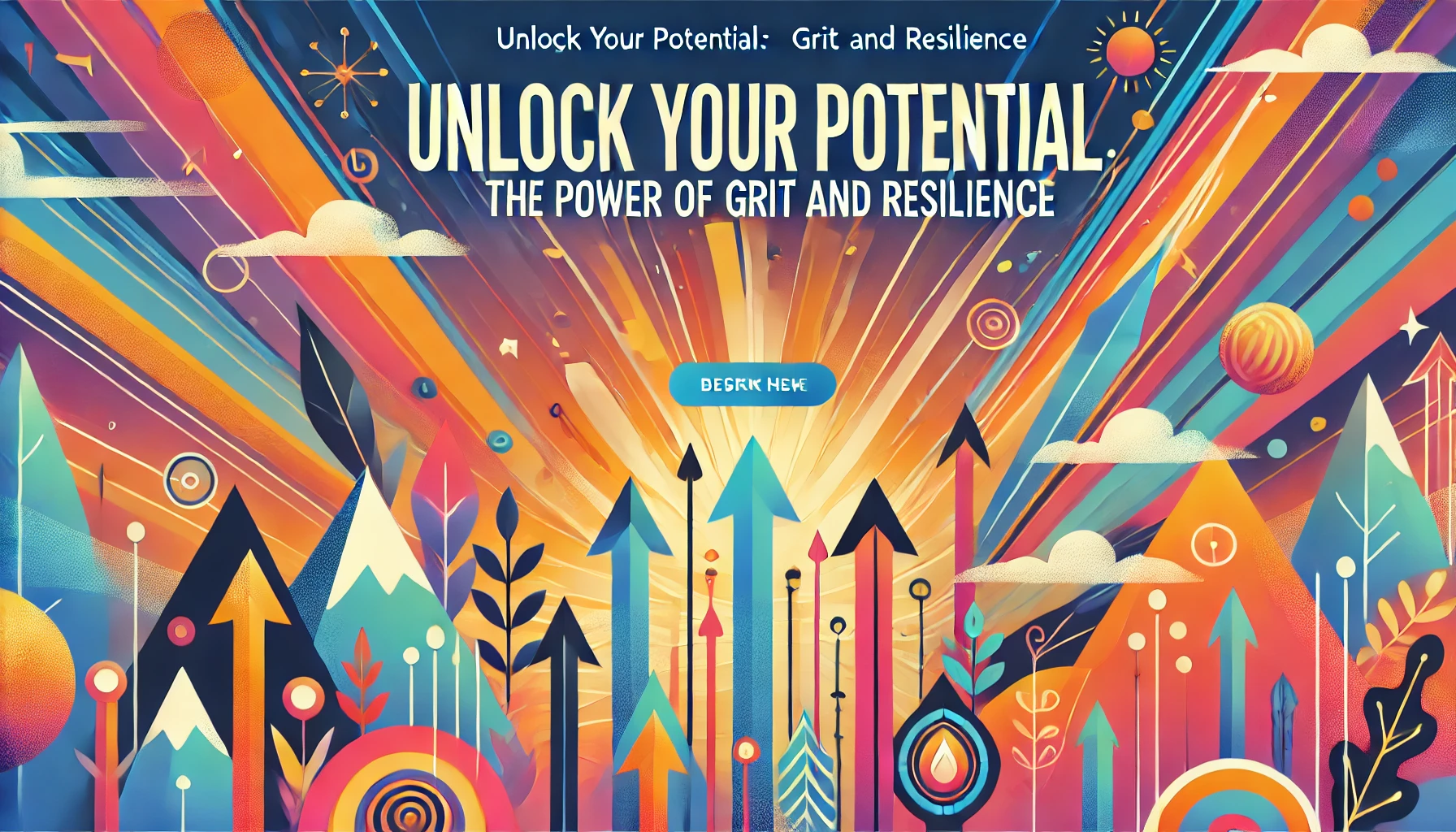
Unlock Your Potential: The Power of Grit and Resilience
In the face of adversity, what sets apart those who thrive from those who falter? The answer lies in two powerful qualities: grit and resilience. These attributes are the cornerstones of personal and professional success, enabling individuals to push through challenges, bounce back from setbacks, and ultimately, unlock their full potential.
Understanding Grit
Grit is more than just perseverance; it’s a unique blend of passion and persistence. Psychologist Angela Duckworth defines grit as the relentless pursuit of long-term goals, a steadfast commitment to see things through despite obstacles and difficulties. It’s about maintaining your effort and interest over years despite failure, adversity, and plateaus in progress.
Why is Grit Important?
Research has shown that grit is a significant predictor of success. Unlike talent or intelligence, which are often considered fixed traits, grit is a quality that can be cultivated and strengthened over time. Those with high levels of grit are more likely to achieve their goals because they do not give up easily. They understand that setbacks are part of the journey and are willing to put in the hard work required to overcome them.
Historical Perspectives on Grit
History is replete with examples of individuals who exemplified grit. Thomas Edison, for instance, failed thousands of times before successfully inventing the electric light bulb. He famously remarked, “I have not failed. I’ve just found 10,000 ways that won’t work.” Similarly, Nelson Mandela’s decades-long fight against apartheid in South Africa, despite spending 27 years in prison, showcases an extraordinary level of grit. These stories remind us that perseverance in the face of adversity is a timeless human trait that has shaped the course of history.
The Science Behind Grit
Neuroscience has provided insights into the mechanisms of grit. Studies indicate that the prefrontal cortex, the brain region responsible for planning and decision-making, plays a significant role in regulating effort and persistence. Individuals with higher levels of grit tend to have greater activity in this region, which helps them stay focused and motivated. Moreover, research suggests that grit can be cultivated through deliberate practice, goal setting, and the development of a growth mindset.
Understanding Resilience
Resilience is the ability to bounce back from adversity, trauma, or significant stress. It’s a dynamic process that enables individuals to adapt to challenging circumstances and emerge stronger. Resilience involves a combination of mental, emotional, and behavioral flexibility and adaptability.
Why is Resilience Important?
Resilience helps individuals maintain their mental health and well-being despite life’s inevitable challenges. It allows them to recover more quickly from setbacks and adapt to changing circumstances. Resilient individuals are better equipped to handle stress, maintain a positive outlook, and continue pursuing their goals even in difficult times.
Building Resilience
Resilience is not an innate trait; it can be developed over time through experiences and conscious effort. Here are some key strategies to build resilience:
- Develop Strong Relationships: Surround yourself with supportive, positive people who can provide encouragement and assistance during tough times.
- Find Your Purpose: Having a clear sense of purpose gives you the motivation to keep going even when the road is rough. Reflect on what truly matters to you and let that guide your actions.
- Practice Self-Care: Ensure your physical, mental, and emotional well-being are cared for to maintain balance and energy. Regular exercise, healthy eating, and adequate sleep are essential components of resilience.
- Cultivate a Growth Mindset: Believe in your ability to learn, adapt, and improve continuously. Embrace failures as stepping stones to success.
Case Studies of Resilient Individuals
Consider the story of Viktor Frankl, a Holocaust survivor who demonstrated extraordinary resilience by finding meaning and purpose despite unimaginable suffering. His book, “Man’s Search for Meaning,” highlights the importance of finding meaning in life as a source of resilience. Another example is Malala Yousafzai, who survived an assassination attempt by the Taliban and continued to advocate for girls’ education. Her courage and determination exemplify resilience in the face of extreme adversity.
Integrating Grit and Resilience into Your Life
To unlock your full potential, integrate the principles of grit and resilience into your daily life. Embrace challenges, stay persistent, and maintain a positive outlook. Surround yourself with supportive individuals and prioritize self-care. By doing so, you’ll develop the strength and determination needed to overcome any obstacle and achieve your goals.
Conclusion
Unlocking your potential through grit and resilience is a transformative journey that demands dedication, perseverance, and an openness to face challenges head-on. By embracing and cultivating these qualities, you can navigate obstacles, achieve your aspirations, and lead a life rich with fulfillment and success.
Remember, the journey won’t be easy, but with grit and resilience, you possess the inner strength to overcome any obstacle and reach your highest potential. Stay strong, stay focused, and keep pushing forward. Your potential is limitless, and your future is bright.
http://shop.emmanueltuffet.com/home/22-unlock-your-potential-the-power-of-grit-and-resilience.html
Breaking Free from Labels: The Journey to Greatness
In our fast-paced world, it’s all too easy to be defined by the labels others place upon us. Whether it’s in the classroom, at work, or even within our own families, labels can shape our identities and dictate our paths. But what if we refuse to let these labels define [...]| Play | Cover | Release Label |
Track Title Track Authors |
|---|
